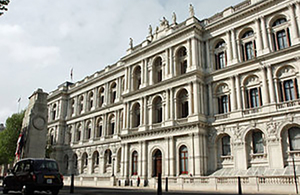UK Government supports the income of 418,000 people across Wales
- New statistics for the UK Government’s job retention and self-employment support schemes show level of support in Wales;
- 102,000 self-employed people in Wales access the Self Employment Income Support Scheme receiving £273 million in support;
- More than 316,000 jobs in Wales have been furloughed ensuring people can return to work after the outbreak;
The UK Government’s unprecedented package of coronavirus support has protected the incomes of 418,000 people in Wales according to statistics published today (Thursday).
The Coronavirus Job Retention Scheme and the Self Employment Income Support Scheme were announced by the Chancellor at the start of the coronavirus pandemic in March as part of a package of measures to support jobs, businesses and individuals affected by the coronavirus outbreak.
Today’s figures show 316,500 jobs in Wales have been furloughed up to the 31st May 2020, across a wide range of sectors including retail, agriculture and construction.
Cardiff has seen 36,000 people furloughed, with 23,000 receiving support through the CJRS in the city of Swansea.
Rishi Sunak, Chancellor of the Exchequer, said:
The UK Government is doing everything we can to, protect jobs and businesses in Wales and across the UK during the crisis.
Our unprecedented job retention and self-employment support schemes have supported the livelihoods of millions and will help ensure our recovery is as swift and possible.
Secretary of State for Wales Simon Hart said:
The UK Government said it would do whatever it took to support the people and businesses of Wales through the pandemic and we have produced an unprecedented package of measures to deliver on that promise.
So far, more than 316,000 Welsh jobs have been supported by the job retention scheme while £273m has been provided to support 102,000 self-employed people. People and businesses in Wales have also benefited from UK-wide schemes such as VAT deferral, company loans and Universal Credit, while the Welsh Government has been allocated an additional £2.2 billion in direct coronavirus funding.
The UK Government has provided certainty for employers and workers to ensure that Wales’s economy is ready to bounce back from the pandemic.
Nationally, employers in the wholesale and retail sectors have furloughed the highest number of employers, covering 1.6 million jobs, followed by accommodation and food service employers furloughing 1.4 million. The CJRS scheme will continue to support jobs until the end of October, with flexible part-time furloughing beginning in July to support businesses as the economy is carefully reopened.
The SEISS scheme has also been extended with those eligible able to claim a second and final grant in August of up to £6570.
The two schemes are part of a comprehensive economic package of support including Bounce Back loans, income tax deferrals, rental support, increased levels of Universal Credit, mortgage holidays and the various business support schemes the government has introduced to protect businesses during this time.
